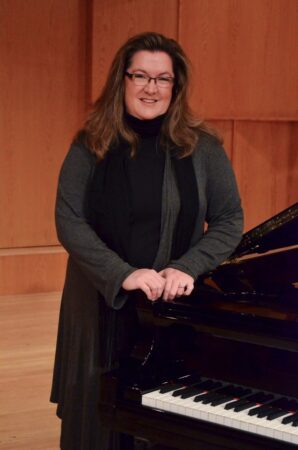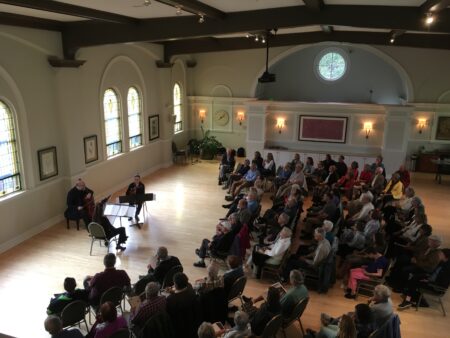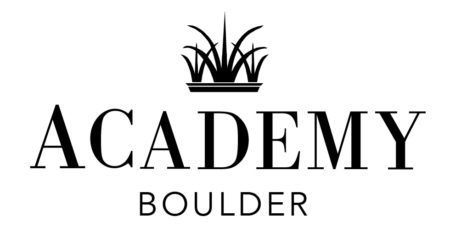“Mahler’s Heirs” – Chamber Music at the Academy*
Thursday, August 26, 2021 | 4PM | FREE
Chapel Hall, The Academy, 970 Aurora Avenue (entrance on 10th Street), Boulder
Masks are required at all indoor events.
This event will also require proof of vaccination.
“Proof” may be the actual card, the Colorado Digital ID or a picture of your card on your phone.
Because of the restrictions on attendance, we are taking advance reservations so we can cap the number of audience members. Please register if you would like to attend this concert.
- SCHULHOFF Duo for Violin and Cello (1925)
- SAWYERS (Visiting composer) Sonata for Violin and Piano No. 1 (1969)
- BACEWICZ Trio for Oboe, Violin, and Cello (1935)
- GÁL Viola Sonata in A, Op. 101 (1941)
 Suzanne Casey – violin
Suzanne Casey – violin
Jessica Mathaes – violin
Karen Bentley Pollick – violin
Lauren Spaulding – viola
Andrew Brown – cello
Kenneth Woods – cello
Jordan Pyle – oboe
Jennifer Hayghe – piano
Composers
Erwin Schulhoff (1894-1942) was a Czech composer and pianist. Dvořák encouraged his early studies and Debussy was one of his teachers. He won the Mendlessohn Prize twice, for piano in 1913 and composition in 1918. He also served on the Russian front during World War I and was a prisoner-of-war when the armistice was signed. Schulhoff was an early adopter of jazz rhythms and influences, writing to Alban Berg, “I am boundlessly fond of nightclub dancing, so much so that I have periods during which I spend whole nights dancing with one hostess or another…out of pure enjoyment of the rhythm and with my subconscious filled with sensual delight.” But, in the 1930s, like so many others, he was blacklisted by the Nazis. At first, Schulhoff did not shy away from his beliefs, composing The Communist Manifesto in 1932. By 1939, when the Nazis invaded Czechoslovakia, he performed under a pseudonym. He was granted citizenship in the Soviet Union but was arrested before he could leave. Schulhoff died from tuberculosis in the Wülzburg prison near Weißenburg, Bavaria. His Duo for Violin and Cello was composed in 1925 and employs a wide range of techniques to create more colors than expected from these two string instruments.
Read about our Visiting Composer Philip Sawyers here. Born in London in 1951, he is one of Britain’s leading composers.
 We are proud to present Trio for Oboe, Violin, and Piano by Grażyna Bacewicz (1909-1969) on August 26, Women’s Equality Day. Bacewicz attended the Warsaw Conservatory before continuing her eduction in Paris, where she studied composition with Nadia Boulanger and violin with André Touret and then Carl Flesch. She composed the trio in Paris in 1935. Bacewicz had the opportunity to hear much of her own music due to her position as Principal Violinist of the Polish Radio Orchestra from 1936 to 1938. She was able to make composition her only occupation in 1954, the same year she suffered serious injuries in a car accident.
We are proud to present Trio for Oboe, Violin, and Piano by Grażyna Bacewicz (1909-1969) on August 26, Women’s Equality Day. Bacewicz attended the Warsaw Conservatory before continuing her eduction in Paris, where she studied composition with Nadia Boulanger and violin with André Touret and then Carl Flesch. She composed the trio in Paris in 1935. Bacewicz had the opportunity to hear much of her own music due to her position as Principal Violinist of the Polish Radio Orchestra from 1936 to 1938. She was able to make composition her only occupation in 1954, the same year she suffered serious injuries in a car accident.
Hans Gál (1890-1987) had a long career that ultimately saw him settle in Edinburgh and be named Officer of the Order of the British Empire. He had early success: his second opera premiered in 1923 under George Szell. The Nazi invasion of Mainz resulted his dismissal from the post as the director of the Mainz Conservatory. Performance and publication of his works were prohibited. He fled to London in 1938 with the intention of making it to the United States, but moved to Edinburgh permanently in 1939 when war broke out in England. In 1940 he was interned for five months as an “enemy alien,” but returned to Edinburgh, composing the viola sonata in 1942, the same year he published his Second Symphony. He taught at the University of Edinburgh from 1945 until retiring in 1960.
What to Expect
 The Academy is a senior living facility. They generously sponsor us and host our performances but insist that we keep them free to the public! Parking is on the street. Please pay attention to the signs. You enter the building from the driveway on 10th Street. There is a front desk where you will be greeted and show your proof of vaccination (“Proof” may be the actual card, the Colorado Digital ID or a picture of your card on your phone). The Chapel Hall (picture on the left) is upstairs. It is a beautiful room that is used for many concerts as well as other events. This is a relatively informal concert with musicians mingling and setting up while you enter – there is no real dressing room for them here. For an afternoon performance, dress comfortably. Know that it is well air-conditioned, so if you are someone who gets cold, you might want a sweater. If you have the opportunity, please thank the Academy staff for hosting our concert.
The Academy is a senior living facility. They generously sponsor us and host our performances but insist that we keep them free to the public! Parking is on the street. Please pay attention to the signs. You enter the building from the driveway on 10th Street. There is a front desk where you will be greeted and show your proof of vaccination (“Proof” may be the actual card, the Colorado Digital ID or a picture of your card on your phone). The Chapel Hall (picture on the left) is upstairs. It is a beautiful room that is used for many concerts as well as other events. This is a relatively informal concert with musicians mingling and setting up while you enter – there is no real dressing room for them here. For an afternoon performance, dress comfortably. Know that it is well air-conditioned, so if you are someone who gets cold, you might want a sweater. If you have the opportunity, please thank the Academy staff for hosting our concert.
* All programing and artists subject to change
Thank you to the Academy for hosting us.

